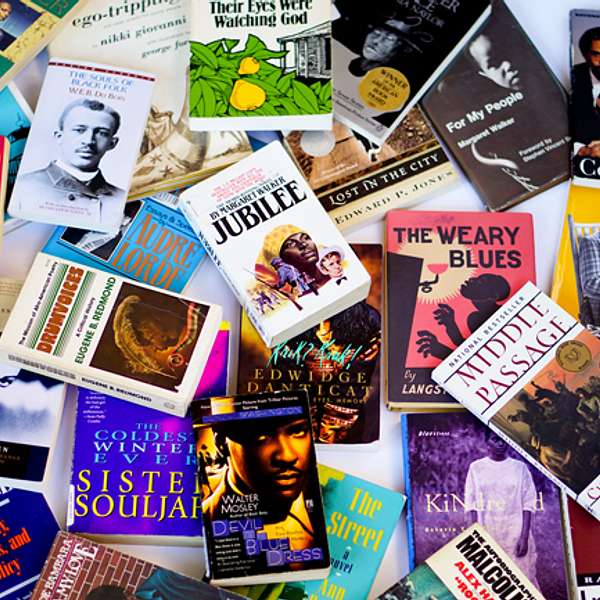
Remarkable Receptions
A podcast about popular and critical responses to African American novels, artistic productions, and more.
Remarkable Receptions
Black novel dedications -- ep. by Howard Rambsy II
A short take about the dedications offered by Black novelists in their books.
Episode by Howard Rambsy II
Read by Kassandra Timm
“For my parents”
“This book is dedicated to the memory of my grandmother”
“To R.G.
For decades of wit, insight and intellect.
Thank you”
If you’ve ever wondered about the dedications offered by Black novelists in their books, then guess what? You’re not alone.
You’re listening to Remarkable Receptions — a podcast about popular and critical responses to African American novels and more.
Book reviewers and literary scholars rarely discuss the dedication pages in novels. Dedications, like the table of contents, copyright page, acknowledgements, and book blurbs are thought to be para-texts, that is, items that are a part of the book, but outside the main narrative. And while the dedications are not central to literary interpretation, we, as readers, focus our attention, however briefly, on the person or people who novelists bestow their regards to at the beginning of their books.
Perhaps one of the most famous dedications is from Toni Morrison’s 1987 neo-slave narrative Beloved. She writes,
“Sixty Million
and more.”
The “sixty million” refers to the black people who died on ships after being stolen from Africa and forced into the slave trade.
In 1999, Tayari Jones published her novel Leaving Atlanta about the Atlanta child murders. Jones dedicates her book to “twenty-nine and more,” a reference to the children who were killed in Atlanta and a nod to Morrison’s famous dedication “Sixty Million and more.”
Dozens of black novelists dedicate their novels to their parents, their spouses, their siblings, and their children. In one case, a sibling dedication became a jumping off point for something more. John Oliver Killens dedicated his 1971 novel The Cotillion to his brothers and sister and also to “all my Brothers and Sisters the world over.”
Some authors, like Gloria Naylor and Colson Whitehead dedicated their novels to their editors.
There’s something poetic, by the way, about the way the dedications look on the page. Several novelists use line breaks as if they are writing poems.
Consider the near-couplet of Octavia Butler’s 1979 Kindred.
To Victoria Rose,
friend and goad
Or, there’s Richard Wright’s dedication to his famous 1940 novel Native Son:
To
My Mother
who, when I was a child at her knee, taught
me to revere the fanciful and the imaginative.
Or, there’s the poetic dedication that Dorothy West provided for her 1995 novel The Wedding:
To the memory of my editor,
Jacqueline Kennedy Onassis. Though
there was never such a mismatched
pair in appearance, we were
perfect partners.
Black novelists sometimes dedicate their novels to black people in general. For his 1967 novel, dem, William Melvin Kelley writes, “This book is dedicated to the black people in (not of) America.”
And if that dedication makes white people feel left out, they should consider the dedication for George Schuyler’s 1931 book Black No More.
This book is dedicated
to all Caucasians in the great republic
who can trace their ancestry
back ten generations
and confidently assert that there are no
Black leaves, twigs, limbs or branches on
their family trees.
*********************************
This episode was written by Howard Rambsy. The episode was edited by Elizabeth Cali.
*********************************
This podcast, Remarkable Receptions, is part of the Black Literature Network, a joint project from African American literary studies at Southern Illinois University Edwardsville and the History of Black Writing at the University of Kansas. The project was made possible by the generous support of the Mellon Foundation. For more information, visit blacklitnetwork.org.